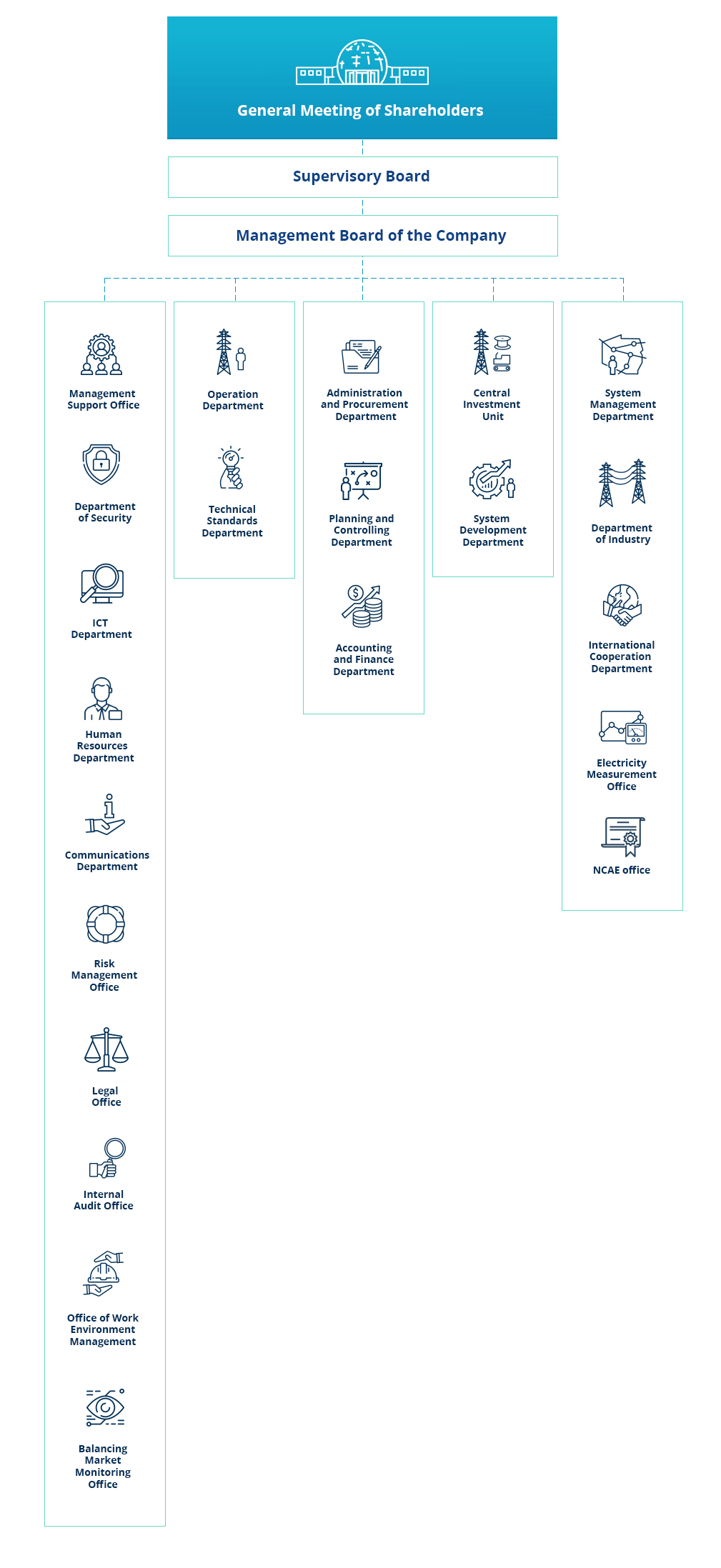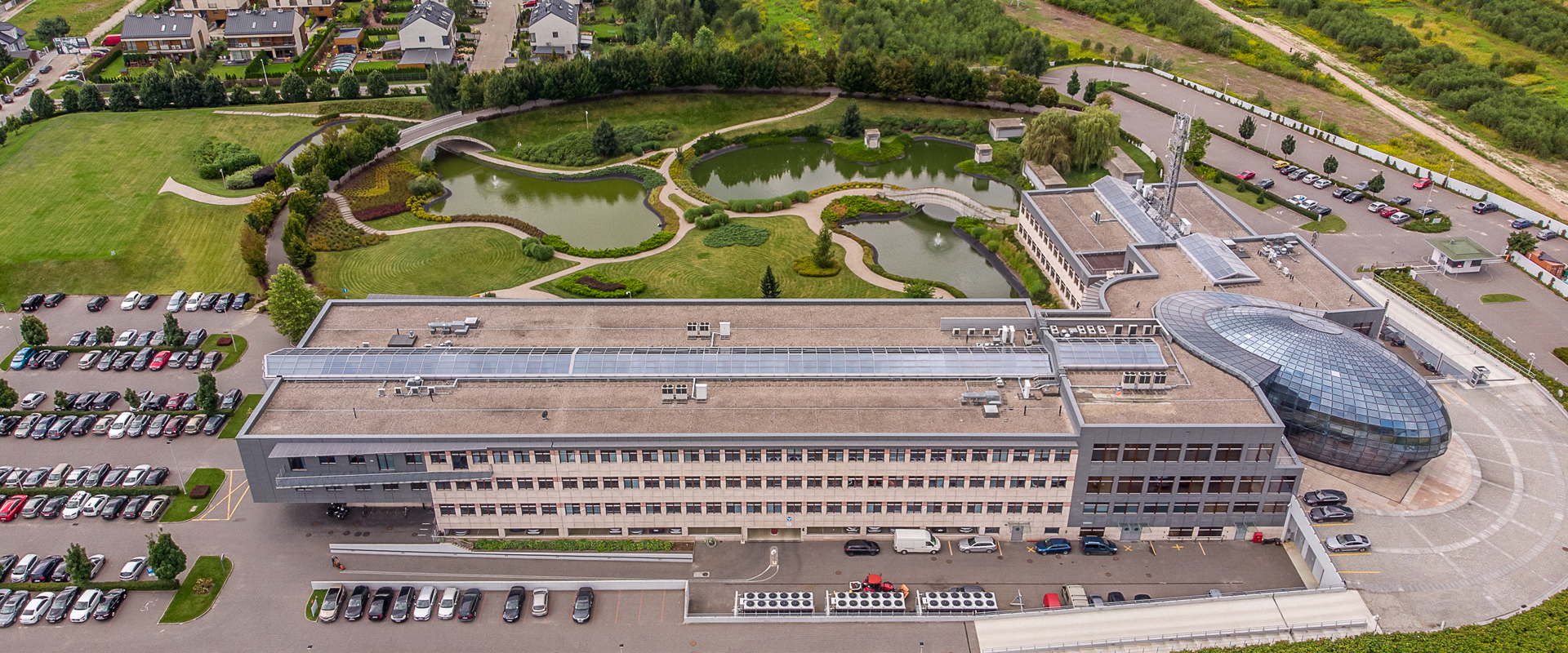Company’s governing bodies
GRI 102-5
The sole shareholder of PSE is the State Treasury, whose powers are exercised by the Government Plenipotentiary for Strategic Energy Infrastructure with the Ministry of Funds and Regional Policy. In the case of both subsidiaries of the PSE Capital Group, i.e. PSE Inwestycje and PSE Innowacje, the function of the general meeting of shareholders is performed by the Management Board of PSE with the assistance of appointed proxies.
GRI 102-18
GRI 102-22
On the corporate front, the company's operations are overseen by a Supervisory Board whose members are appointed by the General Meeting of Shareholders. The term of office of the Supervisory Board members is 3 years. The company's Supervisory Board is composed of seven persons.
The Supervisory Board acts pursuant to the Commercial Companies Code and other laws, the Company's Articles of Association, resolutions of the General Meeting and the Rules of the Supervisory Board.
The composition of the Supervisory Board as at the
Date of report
is as follows:
- Paweł Łatacz – Chairman of the Supervisory Board
- Marcin Czupryna – Vice Chairman of the Supervisory Board
- Paulina Mielcarek – Secretary of the Supervisory Board
- Konrad Fisher - Member of the Supervisory Board
- Ksenia Ludwiniak – Member of the Supervisory Board
- Tadeusz Skobel – Member of the Supervisory Board
- Andrzej Jan Toborowicz – Member of the Supervisory Board
- Michał Wierzchowski – Member of the Supervisory Board

 Composition of the Supervisory Board by age and diversity
Composition of the Supervisory Board by age and diversity

